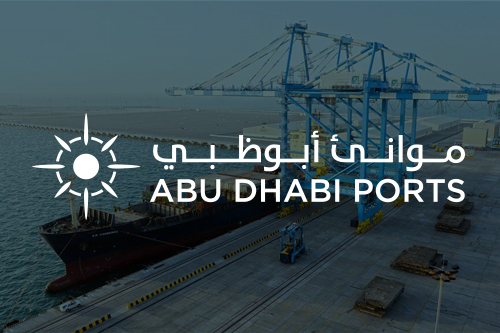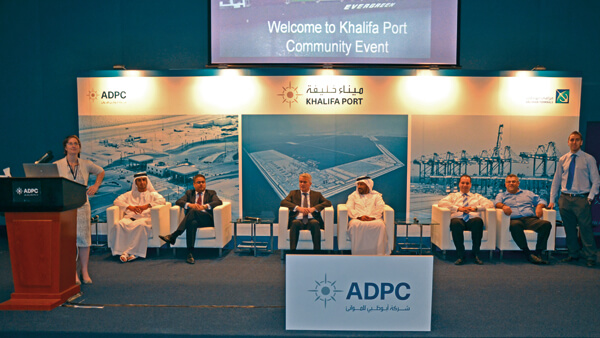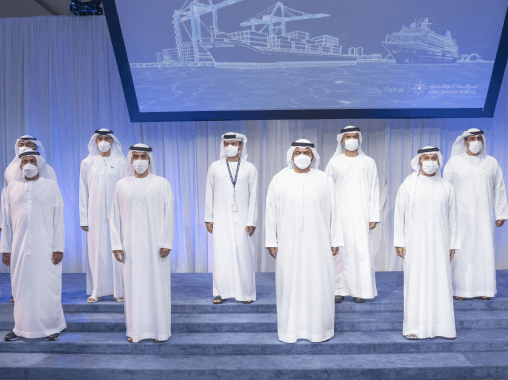ADT handles 2 million containers at Khalifa Port
Abu Dhabi Terminals (ADT), manager and operator of the first semi-automated and most technologically advanced container terminal in the Middle East, Khalifa Port Container Terminal, has today celebrated handling 2 million TEU (20-foot-equivalent units) since the opening of Khalifa Port on 12/12/2012.
The 2 million TEU accomplishment surpasses the initial target and represents a 20% year-on-year increase in containers handled by Abu Dhabi Terminals at Khalifa Port Container Terminal.
This significant throughput milestone is driven by a strong increase in both import and export items with volume growth alongside continued high demand from local and global customers.
“Passing this latest record demonstrates the extremely robust position of Khalifa Port Container Terminal due to its diverse and increasing trade base, strategic location and significant hinterland connections,” said Martijn van de Linde. “We are continuously committed to support the economic growth of the UAE and at the same time provide our customers with fast and efficient services.”
Gary Lemke, Executive Vice President Ports, Abu Dhabi Ports Company (ADPC) the owner and developer of Khalifa Port said: “Today, we can see that Khalifa Port is successfully driving business growth across the Emirate. The port’s growing network of services, ease of doing business and supply chain connectivity is clearly supporting ADT’s 20% year on year growth as import/export trade increases.”



























